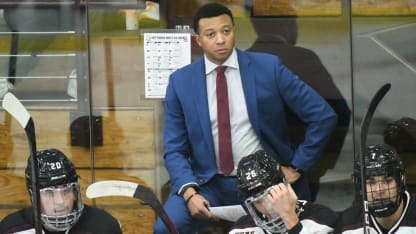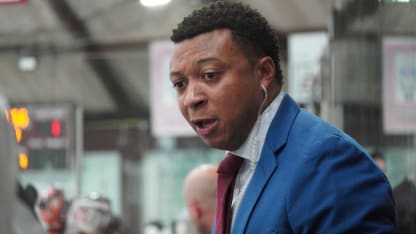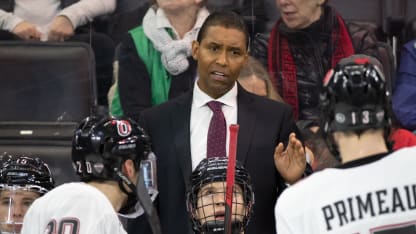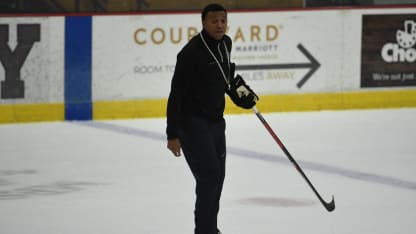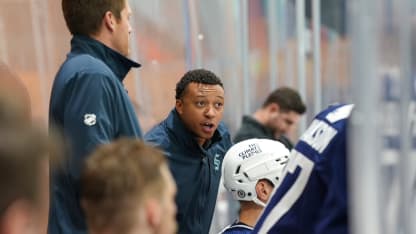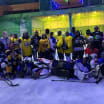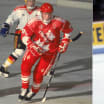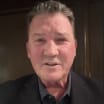William Douglas has been writing The Color of Hockey blog since 2012. Douglas joined NHL.com in 2019 and writes about people of color in the sport. Today, he profiles Lennie Childs, who was named coach of Omaha of the United States Hockey League in April, becoming the league's first Black coach.
Lennie Childs said becoming coach of Omaha of the United States Hockey League boiled down to advice that his mentor, Paul Jerrard, gave him several seasons ago.
“'If you have an opportunity to be a head coach and blaze your own path, do it,’” Childs said. “Those words rang in my ears nonstop. Honestly, I would say that was the biggest determining factor other than talking to my wife and saying, ‘Hey, is this something that you want to do?’”
It seems fitting Childs, an assistant on Union College’s NCAA Division I men’s team for the past two seasons, takes the helm of a team in the same city where Jerrard coached.
